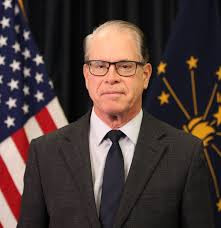|
||||||||||||||||||||||||||||||||||||||||||||||||||||||||||||
|
|
HOT JOBS
American College of Education Keeps Tuition Affordable with ‘Online-First’ Programs Built for Effective Learning and to Facilitate Career Progression
ACE offers its students high-quality online instruction and engaging and relevant curriculum, while avoiding unnecessary expenses.
INDIANAPOLIS,(Newswire.com) – Getting your degree online should be less expensive than pursuing it in person, but recent reports show traditional colleges charge as much or more for online courses than in-person programs. In May 2025, the Hechinger Report documented how the costs of online education are soaring because colleges have recognized online education as a money-making opportunity, even though technology allows it to easily scale while avoiding bricks-and-mortar overhead costs.
American College of Education (ACE) builds its programs online-first, optimized for a fully virtual experience and designed to be relevant to today’s economy. That relentless focus on high-quality online teaching and learning allows ACE to keep its expenses in check and pass savings on to its students. ACE has not raised tuition since 20161, making its tuition among the most affordable in the nation.
ACE, founded in 2005, is a national innovator providing quality, affordable and accredited online undergraduate, graduate and doctoral degrees. ACE is the third-highest conferrer of education master’s degrees in the United States2. ACE’s low tuition enables nearly nine out of 10 students to graduate debt-free3.
“At ACE, students are learning through a truly online, career-focused program, not a traditional classroom program that is forced into an online format,” said ACE President and CEO Geordie Hyland. “That way, ACE provides education that delivers real returns for the student and does it more efficiently and affordably.”
While 80% of people believe online education should be less expensive than in-person programs, a 2024 survey of colleges’ online learning officers found that 83% of schools charge the same tuition or more. A 2024 report by the Education Data Initiative found that at public four-year colleges, the tuition rate for online instruction was $341 per credit, slightly higher than the $325 per credit cost for in-person instruction.
In contrast, ACE provides an education that nine out of 10 students and 96% of employers consistently recommend, and at far less than the average cost: $215 per credit hour for most bachelor’s-level courses, $235 per credit hour for master’s-level courses and $306 per credit hour for doctoral-level courses.
The key is ACE’s high-quality instruction and its curriculum development process. ACE’s faculty are pro-active, passionate practitioners who bring real-world and relevant experience into the online classroom.
ACE’s curriculum is purpose-built for effective online learning. “We build our courses the same way you build a house,” said Jill Delcambre, ACE’s vice president of learning innovation and design. “You don’t start with the materials – you start with a blueprint of where you want everything to go and how it all fits together.”
ACE’s curriculum development process begins with academic leadership conducting program planning through market research and stakeholder input to determine the concepts and skills each course should cover. From there, ACE develops learning outcomes and a “course map” for the faculty to create content.
Faculty members collaborate with ACE’s dedicated curriculum development team to create the course, which is usually a 12-week process. They plan and develop the course content, ensuring programs and courses have measurable outcomes and that materials are at the proper level and that student expectations are clear.
ACE’s learning design team creates visually engaging, accessible and easy-to-navigate courses in the online platform for a seamless learning experience. “Another thing that ACE does differently is that we produce all of our video in-house,” Delcambre explained. The e-learning content designers produce all course videos – whether filmed with faculty in the ACE studio or designer-created content – ensuring engaging, top-quality video and vocal presentation. “We’re not going to send students to YouTube to watch videos someone else has created or just put someone in front of a camera and have them start talking,” Delcambre said. “We ensure that the content in our videos is evidence-based, backed by research and pulls students in to create meaningful engagement and active learning.”
The content designers also leverage AI as a tool to help them create interactive elements for students. For example, an education course’s module on classroom management would include designer-created “branching scenarios,” built with AI assistance, on how teachers should handle specific situations.
ACE’s rigorous development process is designed to ensure that courses keep students engaged and learning, and in a manner that allows the content to remain relevant and updated. This commitment to quality through in-house development and production represents a significant institutional investment that ultimately benefits students through both quality control and affordability. “Our investment in our courses is significant, but it’s an institutional priority that we absorb rather than pass on to students,” Delcambre said. “We’re intentional about incorporating technology that enhances learning outcomes and serves a clear educational purpose.”
ACE can also keep tuition low because of its intentional decision to forego Title IV federal student loans, even though the college is qualified to accept them. By avoiding the administrative and overhead costs of the loan programs, ACE can reduce its operational expenses and the related costs to students.
With ACE’s degree programs built and priced as true online services, students are paying less than they would for online programs offered by colleges with a physical campus. For more information, please visit ace.edu.
1 Excludes RN to BSN program
2 nces.ed.gov/IPEDS/datacenter
3 Internal research completed in March 2025
LaMar earns top award at USI Hagemann Awards for Musical Performance
The University of Southern Indiana is proud to announce Shawnee LaMar as the winner of the 2025 Hagemann Awards for Musical Performance. The awards finalist concert, held Tuesday, July 16 at Murphy Auditorium in Historic New Harmony, featured four talented high school musicians from Posey County, Indiana, with LaMar earning the top award for her clarinet and vocal performances.
As this year’s winner, LaMar received a $1,000 cash prize and the prestigious Alexander Scholarship valued at $2,000. The other three finalists were awarded $500 in recognition of their outstanding musicianship.
LaMar, a recent high school graduate, has been a dedicated student of music for seven years. “I began playing the clarinet when I joined band seven years ago, which later led to my two-year involvement in choir,” she said. “In that time, I’ve participated in instrumental solo and ensemble for six years, advancing to state for a clarinet ensemble and two clarinet solos. For the two years I participated in vocal solo and ensemble, I advanced to state both times for solos.”
Her musical achievements also include performances with the All-District Honor Band, the Murray State University Quad State Festivals in both instrumental and vocal music and the Evansville Symphonic Band as a recipient of the Wesley Shepherd Award. In addition to her musical pursuits, LaMar has been active in theater, playing lead roles such as Kim MacAfee in Bye Bye Birdie and Elle Woods in Legally Blonde.
Other 2025 finalists included Addaleigh McFadin (piano), Collin Swartz (bass clarinet) and Faith Juncker (voice).
Now in its latest installment, the Hagemann Awards for Musical Performance was founded by Posey County native and internationally recognized composer and conductor Philip Hagemann to honor and encourage the artistic talent of young musicians in his home community. The competition is produced by the USI Music Program and supported through a generous gift from Hagemann.
Judges for the 2025 competition included John Spradley, former band director at Gibson Southern High School; Joe Uthup, USI Part Time Vocal Instructor; and Thomas Drury, USI Instructor in Music and collaborative pianist.
U.S. Secretary of Education Linda McMahon Visits Indiana
Visit to Purdue University with Governor Mike Braun highlights innovation in education and workforce.
WEST LAFAYETTE, IN – U.S. Secretary of Education Linda McMahon, Indiana Governor Mike Braun, Indiana Secretary of Education Dr. Katie Jenner and Indiana Secretary of Energy and Natural Resources Suzanne Jaworowski visited Purdue University today to highlight Indiana’s comprehensive approach to reimagining education through the lens of career alignment and student success.
“It is an honor to host Secretary McMahon in the state of Indiana and allow her to see first-hand why Indiana has emerged as a national leader in education and innovation,” said Governor Braun. “Indiana is boldly investing in emerging sectors that will shape the future of our economy and national competitiveness. Central to this commitment is a strategic focus on good-paying jobs in market-driven industries that hold transformative potential for Indiana’s education system, economy, and long-term prosperity.”
As part of the visit, Secretary McMahon, Governor Braun, Secretary Jenner and Secretary Jaworowski toured Purdue University’s nationally-recognized research facilities in nuclear engineering and artificial intelligence (AI).
Leaders also engaged in a roundtable discussion with stakeholders from K-12 education, higher education, and local industry to discuss how Indiana is:
- Leveraging cross-sector partnerships to develop future-ready talent pipelines,
- Embedding workforce-aligned competencies in both secondary and postsecondary education, and
- Positioning Hoosier students to lead in the innovation economy
“Indiana is truly on the leading edge when it comes to rethinking the four years of high school,” said Dr. Jenner. “The collaboration that exists across K-12, higher education, and industry is instrumental in preparing students for their unique future, whether that includes college, a career, or military service. I am grateful for the work that was on display today from team Indiana and look forward to continuing to find bold, collaborative ways to improve outcomes for the next generation of Indiana leaders.”
New leadership team members announced for ISDA
|
| INDIANAPOLIS (July 16, 2025) – Two new leadership changes have been announced by the Indiana State Department of Agriculture (ISDA). David Bausman has been selected as the General Counsel and Andrew Sherman has been promoted to Director of the Economic Development Division. “We are proud of the impact that these two individuals have made for Indiana agriculture here in the U.S. and abroad,” said Don Lamb, Director of the Indiana State Department of Ag. “I am excited to see them step into these new roles and look forward to continued growth and success for our future.”
David Bausman will serve as the chief legal advisor for the agency. He also manages ISDA’s Public Affairs team which is responsible for the agency’s policy development at the federal, state and local level. Additionally, he is currently overseeing the agency’s efforts in creating the Agricultural Portal, which was a Governor Braun legislative priority from this past session. In addition, he serves as the Lt. Governor’s proxy for the Environmental Rules Board. Bausman was previously at ISDA from July 2013 to January 2017 when he led the policy and regulatory affairs team at the ISDA working on leading the agency’s legislative and policy efforts. Prior to rejoining ISDA, Bausman held the role of General Counsel with the Indiana Department of Natural Resources (DNR) where he worked on various conservation issues such as forest management, carbon sequestration, and drainage issues. Bausman has over 12 years of experience working in state government in various legal and legislative capacities. His time at ISDA and DNR has given him a wide range of experience dealing with agricultural and conservation issues facing Indiana’s farmers. Bausman has a bachelor’s degree in political science from DePauw University and a law degree from Robert H. McKinney School of Law at Indiana University. He lives in Johnson County with his wife and two daughters and enjoys fishing, golfing, and the great outdoors. Andrew (Drew) Sherman has been promoted from International Trade Director to Economic Development Director. In this role, Sherman will lead and implement ISDA’s business retention, expansion, and attraction strategy, including partnerships with State, regional, and local economic development organizations. In his previous role as ISDA’s International Trade Director, Sherman advocated for Indiana agriculture in global markets and supported Hoosier exporters across the agricultural value chain. Sherman continues to represent ISDA on several export advisory councils, including the Indiana District Export Council, Indiana Small Business Development Center, Indiana Economic Development Corporation Trade Council and US Global Leadership Council’s Indiana Advisory Committee. Sherman joined ISDA in 2022 and has 10+ years of experience across the public, private, and non-profit sectors. An Iowa native, he has a Bachelor’s degree in Economics & International Studies from Iowa State University and a Master’s of Public Affairs from Indiana University in Economic Development, Policy Analysis, & Public Finance. Sherman is a member of AgriInstitute’s Indiana Agricultural Leadership Program Class 21 and participated in the Emerging Professional Leadership Program Class of 2023. Sherman resides in Indianapolis with his wife and daughter.
###
|
|
| Pictured about is David Bausman. ISDA’s general counsel. For a high resolution photo, please email Regan Herr at rherr@isda.in.gov. |
|
| Pictured above is Andrew (Drew) Sherman, ISDA’s Economic Development Director. For a high resolution photo, please email Regan Herr at rherr@isda.in.gov. |
EPD DAILY ACTIVITY REPORT
FOOTNOTE: EPD DAILY ACTIVITY REPORT information was provided by the EPD and posted by the City-County-County Observer without opinion, bias, or editing.
Governor Braun Forms Task Force to Strengthen Emergency Alert System to Protect Hoosiers
INDIANAPOLIS – In the wake of flooding devastation in Texas, Governor Mike Braun is launching an Emergency Alert Task Force to evaluate the current alert and warning systems in Indiana and identify opportunities to enhance those systems or provide additional warning systems to keep Hoosiers safe.
“Following the tragic loss of life from flooding in Texas, we’re taking proactive action to make sure our emergency alert systems are up-to-date, fully functional, and that we’re making any enhancements possible to better protect Hoosiers from extreme weather.” – Governor Mike Braun
The task force will be led by Indiana Department of Homeland Security and Integrated Public Safety Commission, with input from municipal and county officials from fire and law enforcement, as well as advisors from the Indiana Geographic Information Office, National Weather Service, and cell-phone network carriers.
This task force will work on an aggressive timeline this autumn with its evaluation and recommendations to improve emergency alerting protocols, systems, and technology prepared for the Governor by November 1.
Southwest Chapter of the American Red Cross Indiana Region Welcomes New Board Members
Evansville, Ind., (July 17, 2025) – The Southwest Chapter of the American Red Cross Indiana Region is proud to announce the addition of two new board members: Kymberly Thomas and Tonda Welch.
Originally from Henderson, Kentucky, Kymberly relocated to Evansville in 2021. Outside of work, Kymberly and her husband enjoy traveling, experiencing the arts and engaging in service work.
Tonda is a member of the Beta Sigma Phi sorority, which raises money for local charities, scholarships and families in need. She is also a board member of the Prides Creek Golf Course.
Board of Park Commissioners Approves Request for Proposals to Activate Mesker Amphitheatre
At its meeting earlier today, the Evansville Board of Park Commissioners granted permission for city officials to issue a formal Request for Proposals (RFP) to lease Mesker Amphitheatre for use as an entertainment venue.
Once issued, the RFP will remain open for a 60-day period, giving individuals and organizations the opportunity to submit detailed proposals for future use of the historic facility. After the submission window closes, the Parks Board will evaluate the proposals to determine whether a viable path exists to re-activate Mesker Amphitheatre as an entertainment destination.
“Mesker Amphitheatre holds a special place in the hearts of many Evansville residents; it’s where generations of families have come together to enjoy live music, performances, and community events,” said Evansville Mayor Stephanie Terry. “We believe it’s time to explore new opportunities to breathe life back into this beloved venue. Today’s action is a meaningful step toward that goal.”
Originally opened in 1951, Mesker Amphitheatre was once one of the largest open-air venues in the region. Its potential reactivation aligns with Mayor Terry’s broader commitment to Neighborhood Revitalization and Economic Development, aiming to transform underutilized public spaces into assets that contribute to a more dynamic, inclusive Evansville.
The RFP will seek proposals that are financially viable, operationally sound, and sensitive to the amphitheatre’s historic character and location near the Mesker Park Zoo.
“Reactivating Mesker will require the right partner – someone who shares our vision for a community-centered venue that also brings economic and cultural vitality,” Mayor Terry said. “We’re hopeful that this process will bring forth exciting opportunities for the future of Mesker Amphitheatre.”
The official RFP will be posted in the coming days.














